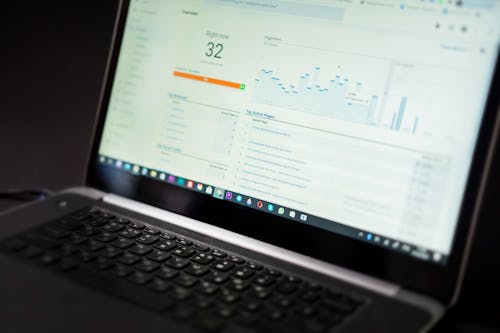What is the difference between on-page and off-page SEO:- SEO or Search Engine Optimization is the process wherein making one’s website looks good on various search engines like Google. It forms an important part of digital marketing. There are numerous sections within SEO, including on-page and off-page SEO. This is a vast difference between on-page and off-page SEO, and knowing this is very crucial for an effective SEO plan.
What is On-Page SEO?
On-page SEO means improving things directly on your website so it can rank higher on search engines and get more visitors. It includes making changes to parts of your web pages to make them easier for search engines to understand.
Key Parts of On-Page SEO:
- Title Tags
A title tag is the name of a web page. It shows up in search results as the clickable link and is important for both SEO and the people using the site. - Meta Descriptions
A meta description is a short summary of what a web page is about. While it doesn’t affect rankings directly, a good one can make more people click on your page.
Online Reputation Management Keeping track of online reviews, ratings, and mentions helps build a good brand image. This can also affect how well your website ranks in search engines.
- Brand Mentions
Even if there’s no link, when people mention your brand online, it can make your website seem more trustworthy and important. - Guest Blogging
Writing articles for well-known websites in your industry can help more people know about your brand and bring more visitors to your site.
Key Differences Between On-Page and Off-Page SEO

Both on-page and off-page SEO help improve how a website shows up in search engines, but they focus on different things.
- Focus and Scope
On-page SEO is about improving parts of your own website, like content and meta tags. Off-page SEO looks at things outside your website, like backlinks and social media mentions. - Control and Influence
You can control on-page SEO because you can change your website. Off-page SEO is harder to control because it depends on what others say or do about your website. - Immediate vs. Long-Term Impact
On-page SEO can show results quickly because search engines can notice changes fast. Off-page SEO, like building links, takes longer to have an effect on your rankings.
| Aspect | On-Page SEO | Off-Page SEO |
|---|---|---|
| Focus | Optimizing elements on your own website | Building your website’s reputation through external sites |
| Control | You have full control over changes | You have limited control, relies on others’ actions |
| Key Elements | Content, title tags, meta descriptions, headings | Backlinks, social media mentions, brand mentions |
| Purpose | Make the website user-friendly and search engine-friendly | Increase website trust, authority, and visibility |
| Examples | Using keywords in titles, improving page speed | Getting backlinks from reputable websites, influencer partnerships |
| Impact Time | Usually faster, as changes are directly made | Takes longer to show results, as it depends on external factors |
| Tools to Use | Google Search Console, Google Analytics | Backlink checkers, social media monitoring tools |
Examples Showing the Difference
- On-Page SEO Example:
Imagine you change the title tags and meta descriptions on your webpage to include important keywords. This helps search engines understand your page better and can attract more clicks. - Off-Page SEO Example:
Now, let’s say you reach out to popular people in your industry and get them to link back to your website. This builds trust and can improve your rankings.
Why Both On-Page and Off-Page SEO Matter

Even though they are different, both on-page and off-page SEO are important for a good SEO plan. On-page SEO makes sure your website is easy to use, well-organized, and has helpful content. Off-page SEO helps show that your website is trustworthy and respected by others online.
Effective On-Page SEO Strategies

Here are some tips to help with on-page SEO:
- Do keyword research to find the words people are searching for.
- Write interesting, useful content that matches what people want.
- Optimize title tags and meta descriptions with the right keywords.
- Make sure your website loads quickly and works well on mobile devices.
- Use structured data so search engines can better understand your content.
Effective Strategies for Off-Page SEO

To boost your off-page SEO, try these strategies:
- Build a strong backlink plan by getting high-quality, relevant links to your website.
- Engage on social media by sharing your content and interacting with followers.
- Watch for brand mentions and respond quickly to any feedback or questions.
- Work with influencers and industry experts to make your brand more visible.
Measuring Success in On-Page and Off-Page SEO
It’s important to track how well your SEO efforts are working. Here’s what to measure:
- On-Page SEO:
Look at things like how many visitors come from search engines, where your keywords rank, and how long people stay on your site. - Off-Page SEO:
Track the number and quality of backlinks, social media activity, and what people think about your brand.
You can use tools like Google Analytics and Google Search Console to see how your SEO is doing and find ways to improve.
Get Ahead in Search Results with Smart SEO Strategies
On-page and off-page SEO work together to help your business grow online. You won’t see results right away, but with the right plan, you can improve both on-page and off-page factors to boost your ranking on search engines.
Starting with SEO can seem tough, but it gets easier when you break it down into simple steps.
If you’d rather not do all the work yourself, you can hire experts to help. Contact Growth Machine’s SEO team to create a custom SEO plan for your business.
Conclusion
In summary, on-page and off-page SEO are two essential components of a successful search engine optimization strategy. While on-page SEO focuses on optimizing individual web pages for search engines and users, off-page SEO involves activities that occur outside the website to enhance its authority, relevance, and reputation. Both approaches are necessary for achieving sustainable organic search visibility and driving valuable traffic to the website.
Leave a Reply